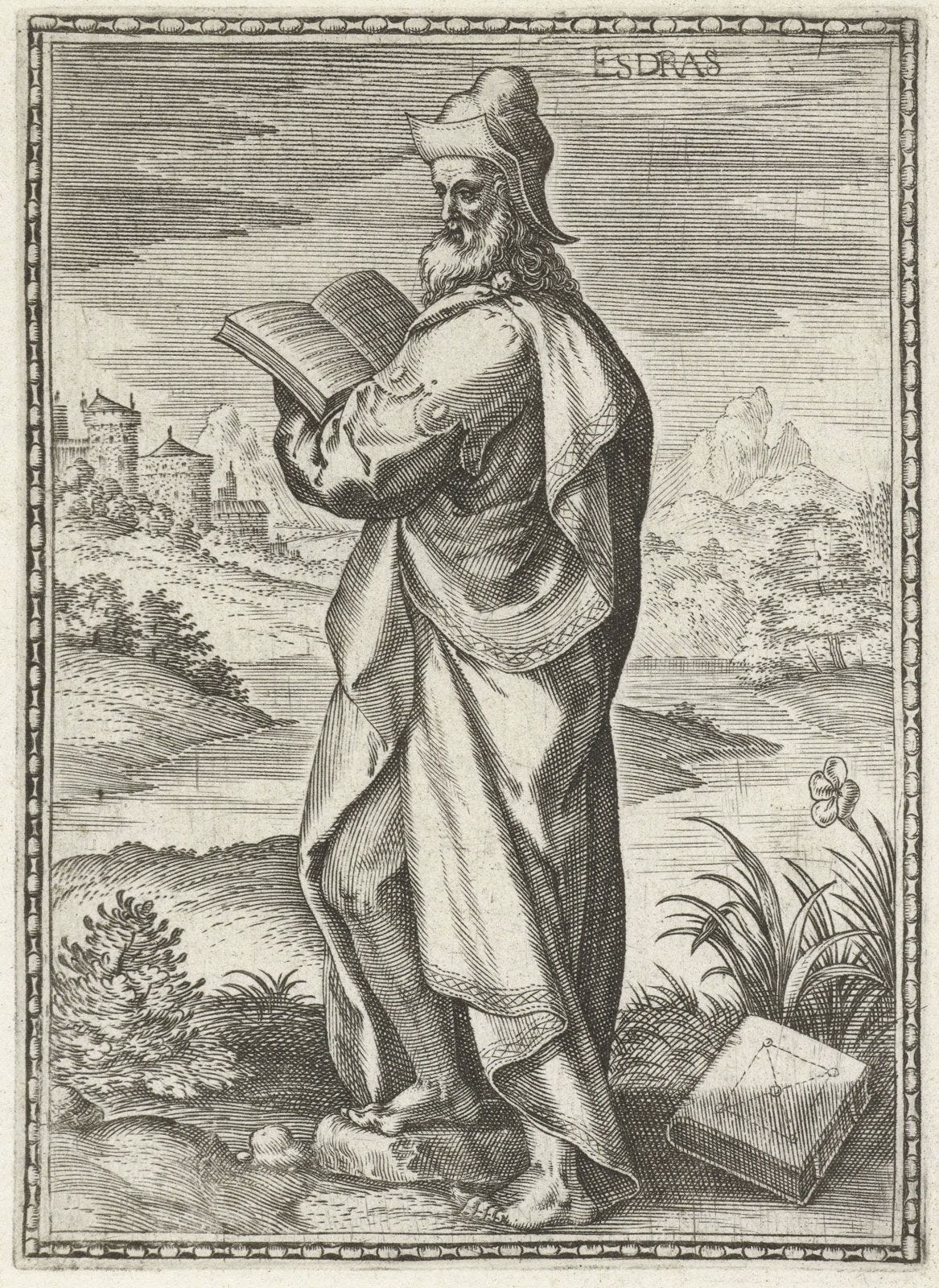One of my favourite Sundays in the year is the 3rd in Ordinary time – the Sunday of the Word of God. St Jerome’s famous quote about scripture is true; if we don’t know scripture, we won’t know Christ. But how often do we just let the words of scripture fly over our head? However the reading for this Sunday should make us stop and think. It comes from Nehemiah chapter 8, which is part of one of our most neglected books. It sits in a strange time as well. It appears to come near the beginning of that long period between the Jews return from exile right until the birth of John the Baptist; of God’s seeming silence. Most of the minor prophets appear in the period in and just after the exile but then no more is heard from God. More than 70 years before the moment recorded in chapter 8, Jerusalem had been destroyed, the Temple of Solomon turned to rubble – the siege by the Babylonians caused great suffering and death and whoever remained was deported to their city. But, decades later, the Persian King – Cyrus the Great allowed the Jews to return and helped to fund the rebuilding of Jerusalem and their precious Temple.
Nehemiah, a Jewish servant in the court of Cyrus was sent to oversee the work, along with a scribe, Ezra, the priestly class of the Levites and all those who would return. Then we read of when the Law was read out to the whole people – the Law which had been rediscovered in the ruins of the Temple. What is most fascinating about this day was the reaction of the crowd. The law caused in their hearts a deep repentance, you could say, a revival. In the run up to this and indeed beyond – Nehemiah faced opposition from Jew and non-alike. His demands were strange, he chastised his people for setting their lives up first, building homes and businesses. He said they were forgetting why they had come – the rebuilding of Jerusalem and most importantly the Temple. But the Jews that had been dragged off as slaves 70 years previous were different in certain respects. This period of their history probably saw the beginning of the permanent institution of the synagogue. This means of worship, which may have had a looser and older history prior to the Babylonian captivity was supercharged once the temple had been removed from them. The Torah became the focal point now, not the holy of holies where the Ark had once resided. They had even been encouraged by the great Prophet Jeremiah who told them to settle down wherever they were, make lives for themselves and wait on the deliverance of God – a new Exodus to the promised land.
So now upon their return you can imagine the pattern in which they had been formed would continue. But Nehemiah was not settling for this. He was not against building homes or businesses; it was about the priority of the people. Whose Kingdom are they building? To whom would their first fruits go?
However, in the wonderful pattern of Scripture, this moment in history was a repeat of the first Exodus. The first exodus saw the people leave the land of slavery, and then given the covenant on mount Sinai by Moses, and the detailed laws of Deuteronomy. We see the intricate construction of the Tent of Meeting where the Ark of the Covenant was to reside – where God would come to earth. Now in this new exodus, we see the building of the temple, the return to the promised land and now we needed the law.
Ezra read the law, the Levites explained it; and the people wept. This is a picture of the Church, for we have the law of the Spirit of life, contained within the Gospels and the Epistles. But we also have tradition and the magisterial acts of the Church to interpret it for us. In Jerusalem the people wept and had a moment of revelation of collective sin. What is the key to a holy life? True repentance, a true metanoia that reorients our lives. Are we open to the Spirits prodding and challenge? Do we allow God in? There is a cultural slur in regards Catholics and sin – ‘Catholic guilt’. Often lain at the door of Irish Catholicism in particular, the oppressive guilt that crushed and controlled. However the scriptures tell us that awareness of sin was not designed to destroy people, but bring people to repentance turning to Him. When we turn, we are not turning to a Father who wishes to punish, but like the father in the parable of the two sons – He runs to us.
This was exactly what Ezra finished on. For he told them to not weep, but to go and enjoy the feasts and thank God announcing a jubilee.
In 2025, our year of Jubilee, why not take the time to be challenged and open like never before.
By Eric Hanna

